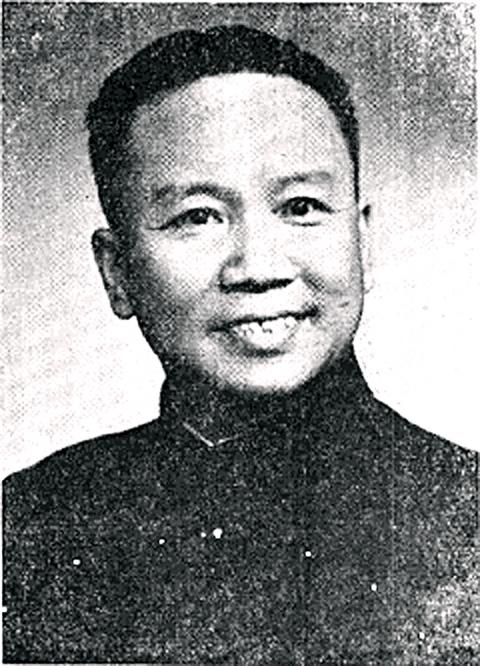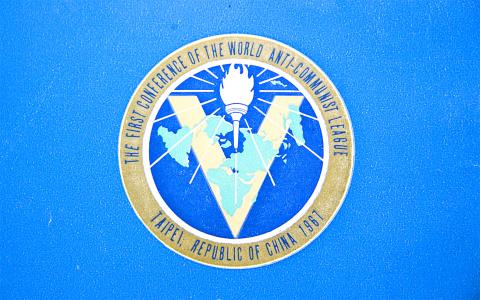Taiwan in Time: Sept. 21 to Sept. 27
After nearly a year of preparations, more than 230 delegates from 64 countries and regions descended upon Taipei on Sept. 25, 1967 to take part in the World Anti-Communist League’s (WACL) inaugural conference. Also in attendance were 12 anti-communist organizations and observers.
As a founding member of the league’s predecessor, the Asian People’s Anti-Communist League (APACL), Taiwan was chosen to host the event during a meeting to discuss the APACL’s expansion in November 1966.

Photo courtesy of Wikimedia Commons
A recap of the conference published by WACL stated that the league decided to meet in Taiwan because it was the “most resolute in its anti-communist position” and “showed the most vigorous anti-communist spirit.”
The APACL was started in 1954 by Chinese Nationalist Party (KMT) leader Chiang Kai-shek (蔣介石), Philippine president Elpidio Quirino and South Korean president Syngman Rhee.
By November 1966, as the APACL had expanded to Australia and Africa with 27 members, it decided to go global during a meeting in Seoul.

Photo: Han Cheung, Taipei Times
“To defeat the communist threat to the world, the anti-communist frontlines of the free people must be expanded to the entire world,” then-South Korean president Park Chung-hee announced during the opening ceremony.
Representatives from 11 countries and three anti-communist organizations met the following week and drafted the WACL charter, which took effect April 1967. The charter called for regional organizations in six regions: Asia, Middle East, Africa, Europe, North America and Latin America.
The charter clearly states that communists are “evil” beings who plan to “enslave the world” and anti-communists as “lovers of freedom,” with a mission to “push for true freedom based on justice and human dignity.”
Furthermore, it states that communist thought is “anti-humanity, anti-rationality, anti-society and anti-science” and can only bring disaster and pain to the world. To the league founders, co-existing with communists is no longer possible and they must be eradicated.
The first conference opened with Ku Cheng-kang (谷正綱) as both event and organization chairman. According to his biography, Ku, who was born in China, joined the KMT in 1924 and rose to the post of the Republic of China’s minister of social affairs. He followed Chiang to Taiwan after the KMT retreat in 1949, serving as minister of the interior and also becoming involved in Chinese refugee activities. Ku remained honorary chairman for the WACL until he died in 1993.
In a speech, Ku described Taiwan as “a lighthouse of freedom in the Pacific Ocean.”
“All anti-communists in the world now see Taiwan as an important stronghold, as a place to cultivate hope for the future,” he added. “A lot of attendees have never been to Taiwan before, but after seeing what we’re doing here, I’m sure they now have more courage and determination to continue the battle against the communists.”
The meeting officially began on the morning of Sept. 25 at the recently-completed Sun Yat-sen Hall (中山樓) in Yangmingshan (陽明山), with Chiang delivering the opening speech. Seven meetings were held over the next five days at the Ambassador Hotel (國賓飯店). Attendees worked on electing officials, approving new members, setting up committees, sharing reports on communist activities in various countries, devising anti-communist methods and denouncing communist ideals.
Taiwan representatives also screened a self-produced documentary and put together a photography exhibit, both depicting how terrible life in China was under communist rule.
During the closing ceremony on Sept. 29, Ku announced that the next meeting would be in Saigon — now Ho Chi Minh City.
“I want to invite everyone to the frontlines of the fight against communism,” he said. “I want everyone to witness or experience firsthand communist actions. We hope to, both spiritually and materially, help strike a fatal blow to communists worldwide.”
The league wasn’t without its controversies over the next decades, having been linked to neo-Nazis, anti-Semites and allegedly included people connected to war criminals and death squads.
In 1989, the end of the Cold War began as communist regimes in Europe started to collapse, highlighted by the fall of the Berlin Wall and the destabilization of the Soviet Union.
In response to the changing political scene, on Jan. 1, 1991, the league officially changed its name to the World League for Freedom and Democracy.
Taiwan in Time, a column about Taiwan’s history that is published every Sunday, spotlights important or interesting events around the nation that have anniversaries this week.

Taiwan has next to no political engagement in Myanmar, either with the ruling military junta nor the dozens of armed groups who’ve in the last five years taken over around two-thirds of the nation’s territory in a sprawling, patchwork civil war. But early last month, the leader of one relatively minor Burmese revolutionary faction, General Nerdah Bomya, who is also an alleged war criminal, made a low key visit to Taipei, where he met with a member of President William Lai’s (賴清德) staff, a retired Taiwanese military official and several academics. “I feel like Taiwan is a good example of

March 2 to March 8 Gunfire rang out along the shore of the frontline island of Lieyu (烈嶼) on a foggy afternoon on March 7, 1987. By the time it was over, about 20 unarmed Vietnamese refugees — men, women, elderly and children — were dead. They were hastily buried, followed by decades of silence. Months later, opposition politicians and journalists tried to uncover what had happened, but conflicting accounts only deepened the confusion. One version suggested that government troops had mistakenly killed their own operatives attempting to return home from Vietnam. The military maintained that the

Jacques Poissant’s suffering stopped the day he asked his daughter if it would be “cowardly to ask to be helped to die.” The retired Canadian insurance adviser was 93, and “was wasting away” after a long battle with prostate cancer. “He no longer had any zest for life,” Josee Poissant said. Last year her mother made the same choice at 96 when she realized she would not be getting out of hospital. She died surrounded by her children and their partners listening to the music she loved. “She was at peace. She sang until she went to sleep.” Josee Poissant remembers it as a beautiful

Before the last section of the round-the-island railway was electrified, one old blue train still chugged back and forth between Pingtung County’s Fangliao (枋寮) and Taitung (台東) stations once a day. It was so slow, was so hot (it had no air conditioning) and covered such a short distance, that the low fare still failed to attract many riders. This relic of the past was finally retired when the South Link Line was fully electrified on Dec. 23, 2020. A wave of nostalgia surrounded the termination of the Ordinary Train service, as these train carriages had been in use for decades